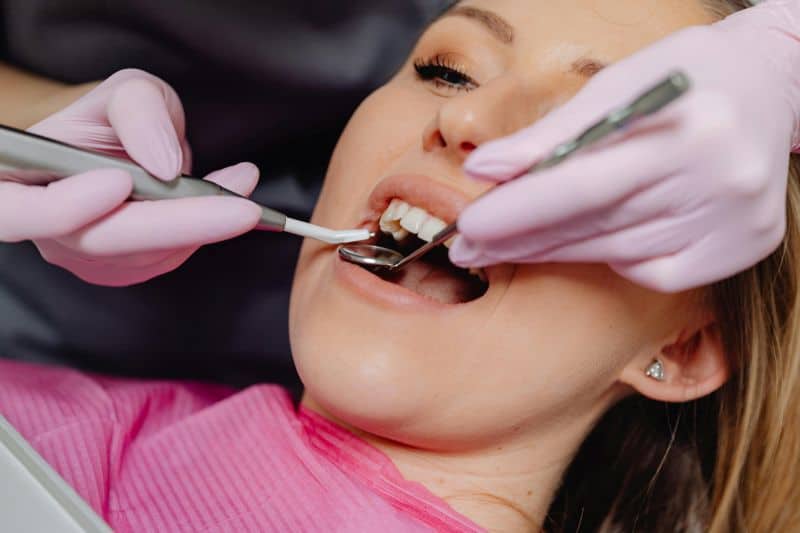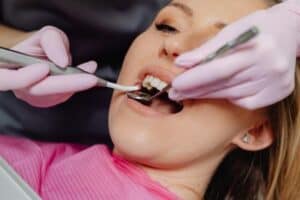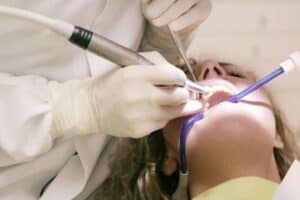
29 May Quick At-Home Remedies for Canker Sores and Irritated Gums
Quick At-Home Remedies for Canker Sores and Irritated Gums
Canker sores and irritated gums are two of the most frustrating oral issues people face. These conditions can make simple tasks like chewing, talking, or brushing your teeth feel like a chore. While they often resolve on their own, the pain can be intense and last for days or even weeks. Fortunately, there are plenty of effective at-home remedies that can offer fast relief, many of which use ingredients already in your kitchen.
In this article, we’ll explore common causes of these conditions, guide you on when to seek medical help, and introduce 15 reliable, science-backed home treatments that bring soothing relief.

Common Causes of Canker Sores and Irritated Gums
Understanding what leads to these painful conditions can help prevent future outbreaks. Below are some of the most common triggers:
Nutritional Deficiencies
Lack of key nutrients, particularly B vitamins (B12, folate), zinc, and iron, is a frequent contributor. Your oral tissues need these nutrients to regenerate and maintain healthy barriers against bacteria.
Poor Oral Hygiene
Skipping daily brushing or flossing allows bacteria to build up, irritating the gums and leading to sores. Maintaining a clean mouth is the first line of defense.
Stress and Hormonal Fluctuations
High levels of stress compromise your immune system, leaving you vulnerable to outbreaks. Hormonal shifts during menstruation or pregnancy can also cause sore outbreaks.
Allergic Reactions and Injuries
Injuries from dental work, braces, sharp foods, or even aggressive brushing can trigger sores. Allergies to toothpaste ingredients, like sodium lauryl sulfate, may also be culprits.
Symptoms You Shouldn’t Ignore
Mild canker sores and gum irritation are common, but there are symptoms that may indicate a more serious issue. If you notice any of the following, it’s time to seek medical advice:
-
Sore spots that don’t heal after 10–14 days
-
Increasing pain or discomfort
-
White patches or lesions that spread
-
Pus or bleeding from the gumline
-
Persistent bad breath or metallic taste
When to See a Dentist or Doctor
While home remedies often provide relief, they’re not a substitute for professional care if symptoms worsen or persist. You should consult a healthcare provider if:
-
You get frequent sores throughout the year
-
Pain prevents you from eating or talking
-
Over-the-counter products fail to offer relief
-
Your sores are unusually large or deep
-
Accompanying symptoms include fever or swollen lymph nodes

15 Quick and Natural Remedies for Relief
Saltwater Rinses
Dissolve a teaspoon of salt into warm water and rinse your mouth thoroughly. This helps disinfect and soothe irritated tissue.
Hydrogen Peroxide Solution
Mix equal parts 3% hydrogen peroxide with water. Dab the solution gently onto sores using a cotton swab. Avoid swallowing.
Baking Soda Paste
Make a paste using baking soda and a little water. Apply directly to the sore to neutralize acids and ease pain.
Aloe Vera Gel
Use natural aloe vera gel to coat the sore. Aloe’s anti-inflammatory and healing properties reduce irritation and speed recovery.
Coconut Oil Pulling
Swish a tablespoon of coconut oil in your mouth for 10–15 minutes. This method helps remove harmful bacteria and reduces inflammation.
Chamomile Tea Compress
Steep a chamomile tea bag, let it cool, and place it directly on the sore. Chamomile contains apigenin, an anti-inflammatory compound.
Honey and Turmeric Mixture
Combine raw honey with turmeric to form a paste. Dab onto the sore for antimicrobial and anti-inflammatory effects.
Over-the-Counter Antiseptic Gels
Products like Orajel or Anbesol numb the area and keep it clean, reducing the chance of infection and easing pain.
Vitamin B Complex Supplements
Take a daily B-complex supplement if you’re frequently experiencing mouth sores. It helps correct underlying deficiencies.
Apple Cider Vinegar (Diluted)
Mix one tablespoon with a cup of water and rinse. Be careful—this is acidic and may sting, but it has antibacterial properties.
Ice Cubes and Cold Compress
Sucking on ice chips or using a cold compress can help numb the pain and reduce swelling in the gums.
Clove Oil Application
Apply a drop of clove oil on a cotton swab directly to the affected area. Clove is a natural anesthetic and antiseptic.
Yogurt and Probiotics
Eat plain yogurt with live cultures daily. Probiotics can help restore a healthy balance of bacteria in the mouth.
Zinc Lozenges
Zinc supports immune function. Taking zinc lozenges during an outbreak can reduce healing time.
Avoiding Trigger Foods
Spicy, salty, or acidic foods can worsen sores. Stick to soft, bland foods until your mouth heals.

FAQs About Canker Sores and Gum Irritation
What exactly causes canker sores?
While the exact cause is unknown, common triggers include stress, injury, food sensitivities, and vitamin deficiencies. Some individuals may also develop them due to hormonal changes or an overactive immune response. Genetics can play a role too, meaning they may run in families.
Can mouth sores spread from one person to another?
No. Canker sores are not contagious, unlike cold sores caused by the herpes virus. They form inside the mouth and are not caused by bacteria or viruses that can be transmitted. You don’t need to isolate from others while experiencing a canker sore.
How can I tell if it’s a canker sore or something more serious?
If the sore is painful, round with a red border and heals within two weeks, it’s likely a canker sore. If it persists or spreads, consult a dentist. Sores that appear unusually large, come with a fever, or are accompanied by swollen lymph nodes may indicate a more serious condition. Getting a professional evaluation can rule out infections or even oral cancers.
Does toothpaste play a role in developing mouth sores?
Yes. Toothpastes containing sodium lauryl sulfate can irritate sensitive mouths. Choose SLS-free options. Switching to a gentler toothpaste can significantly reduce the frequency of sores in some people. Look for products labeled “sensitive” or “natural” to minimize irritation.
Are irritated gums a sign of gingivitis?
They can be. Persistent redness, swelling, and bleeding during brushing are early signs of gingivitis. Left untreated, gingivitis can progress to more serious gum disease like periodontitis. Regular dental checkups and proper oral hygiene can prevent further complications.
Can diet influence mouth sore outbreaks?
Absolutely. Diets low in vitamin B12, zinc, or iron may increase susceptibility to canker sores. Eating a balanced diet rich in leafy greens, lean proteins, and whole grains can help. Staying hydrated and avoiding overly processed foods can also support overall oral health.
What foods should I avoid during a flare-up?
Steer clear of citrus fruits, spicy dishes, hard snacks like chips, and acidic drinks like soda or vinegar-based products. These can irritate the sore further and delay healing. Opt for soft, bland foods like oatmeal, mashed potatoes, or yogurt to avoid aggravation.
Can kids use the same remedies listed here?
Most remedies are safe for children, but avoid strong solutions like hydrogen peroxide or essential oils unless approved by a pediatrician. Always use age-appropriate dosages and formulations. For younger children, natural options like yogurt, chamomile, or saltwater rinses are generally safe and effective.
How often can I use saltwater rinses?
You can safely use them up to 3 times per day. Just make sure not to swallow the solution. Saltwater helps cleanse the mouth and reduce inflammation, promoting faster healing. Be sure to rinse gently to avoid irritating the sore further.
Are there any long-term treatments to prevent recurrence?
Yes. Maintaining good oral hygiene, managing stress, avoiding trigger foods, and supplementing with vitamins can reduce recurrence. Tracking your outbreaks and identifying patterns can help you avoid future triggers. Regular dental visits can also detect any underlying causes early on.
Can probiotics prevent gum inflammation?
Probiotics help balance bacteria in your mouth and gut, which can reduce gum inflammation and support immune health. They may also help prevent the overgrowth of harmful microbes that contribute to plaque and gingivitis. Including probiotic-rich foods like kefir, yogurt, or fermented vegetables can be beneficial.
Do canker sores indicate a weak immune system?
Not always, but frequent sores may be a sign that your immune system is compromised or deficient in certain nutrients. They can sometimes be linked to autoimmune conditions or gastrointestinal issues like celiac or Crohn’s disease. If you experience recurring sores, a medical evaluation might be helpful to uncover any underlying health concerns.
Conclusion: Choosing the Best Remedy for Your Needs
Canker sores and irritated gums are painful, but not powerless. With a wide range of proven remedies—from saltwater rinses and honey turmeric pastes to clove oil and probiotics—you have many ways to find relief. Taking preventative steps like eating a nutrient-rich diet, maintaining oral hygiene, and avoiding triggers can also reduce your risk of recurrence.


Sorry, the comment form is closed at this time.